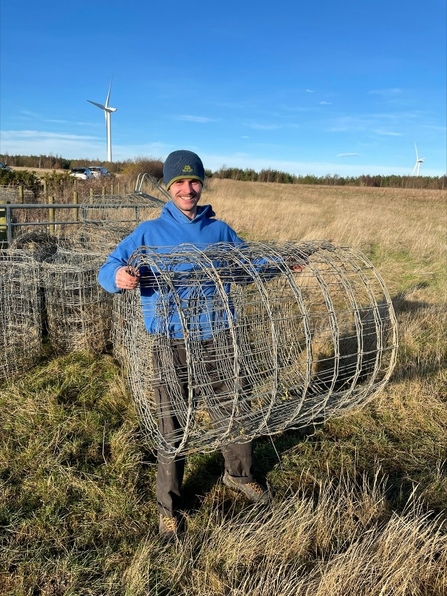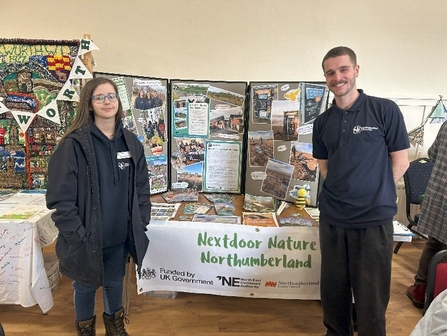
Callum Donnelly from the Nextdoor Nature project.

Callum Donnelly from the Nextdoor Nature project.
I always knew I wanted to work in a role that allowed me to learn in a hands-on way rather than staying in academia. While I enjoyed my degree, which focused on environmental issues from a human perspective rather than a purely scientific one, I was eager to take what I had learned and apply it in real-world settings. This role has been the perfect fit for me, allowing me to work directly with communities while expanding my knowledge in areas beyond community engagement.
In a rural area like Northumberland, a sense of community is not only essential for the wellbeing of individuals, but it also plays a crucial role in conservation efforts. The social cohesion and support networks that a strong community provides can empower people to make positive changes for the environment. I have been lucky enough to witness firsthand how people’s connection to nature can lead to a collective desire to protect and nurture it. I believe that by encouraging individuals and communities to take pride in their local environment, we can foster cultural changes that result in lasting positive impacts. Through strengthening these relationships with nature, we can work toward a more sustainable and promising future for our county, and indeed planet.

Callum and Raven from the Nextdoor Nature project, representing NWT at a public event.
Being in this trainee role has enabled me to learn on the job from the experts around me in my workplace. However, one of the most eye-opening lessons I have learned is just how much knowledge and skill already exist within the local community. There is a wealth of experience in conservation, wildlife protection, and sustainable practices that often goes unnoticed. Many people may not realise that their neighbors have valuable expertise, whether in traditional land management, species identification, or habitat restoration. By bringing these voices together and creating spaces for shared learning, communities can become more self-sufficient in their conservation efforts.
Of course, within our project, we can only support so many groups, and there is a limit to the assistance we can provide. That is why a key focus of our work is to provide groups with the foundation they need to continue making an impact beyond our involvement. Empowering communities with knowledge, connections, and confidence ensures that conservation efforts are sustainable in the long term. The passion and dedication I have witnessed in Northumberland’s communities give me hope for the future of our natural world. I look forward to continuing to learn, grow, and contribute to this meaningful work as my journey in conservation progresses.